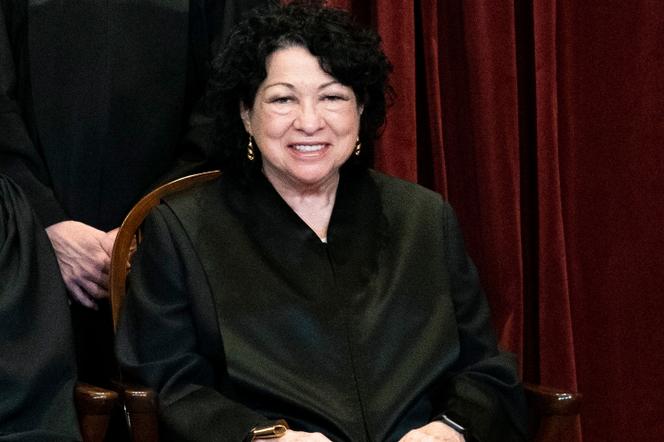

LETTER FROM WASHINGTON

Sonia Sotomayor is a dream come true for the American left. As the first Hispanic justice on the US Supreme Court, she symbolizes emancipation and upward mobility. Born in the Bronx, New York, to parents originally from Puerto Rico, she had a difficult childhood marked by poverty. Her alcoholic father died early. At the age of 7, she was diagnosed with type 1 diabetes, which forced her to self-medicate with daily insulin injections for the rest of her life.
Her passion for books and her exemplary academic record set her apart. In 199, President Bill Clinton appointed her to the US Court of Appeals for the Second Circuit. In May 2009, another Democratic president, Barack Obama, nominated her for one of the nine seats on the Supreme Court.
This biographical reminder is called for when considering the admittedly isolated calls that have been mounting in progressive ranks for several weeks, in favor of her resignation. Is Sonia Sotomayor at the heart of an ethical scandal, like the Court's conservative leader, Clarence Thomas? Not at all. Are her cognitive abilities impaired by advanced age? Absolutely not. Sonia Sotomayor may be the eldest of the three liberal judges, but she is only 69.
Frequent listeners to oral debates before the Court in recent months confirm her acuity. She remains a rigorous and empathetic magistrate, concerned with translating decisions taken by the country's highest judicial body into real life.
And yet, a strange, haphazard campaign has been unleashed in the progressive ranks. It began with anonymous rumors in the trade press. It continued on March 18, in The Atlantic magazine, with an article by journalist Josh Barro. Barro called on Sonia Sotomayor to step down so that the current president, Joe Biden, could appoint another, younger, equally liberal judge who would be confirmed by the Democrat-controlled Senate.
Time is ticking: The presidential and congressional elections will be held in November, and the total uncertainty surrounding them does not allow ruling out the scenario of Donald Trump's return to the White House, along with a Republican majority in the Senate. As such, Josh Barro has called for playing "smart and prudent " seizing the moment for a changing of the guard. In his view, the public taboo on this issue " is part of a broader insanity in the way that the Democratic Party thinks about diversity and representation."
In the wake of this article, other voices have been raised in this sense, such as that of former MSNBC anchor Mehdi Hasan. On the political front, Connecticut's Democratic Senator Richard Blumenthal noted with little tact that "graveyards are full of indispensable people." On NBC, he called on the justices to "keep in mind the larger national and public interest in making sure that the court looks and thinks like America."
You have 43.6% of this article left to read. The rest is for subscribers only.
